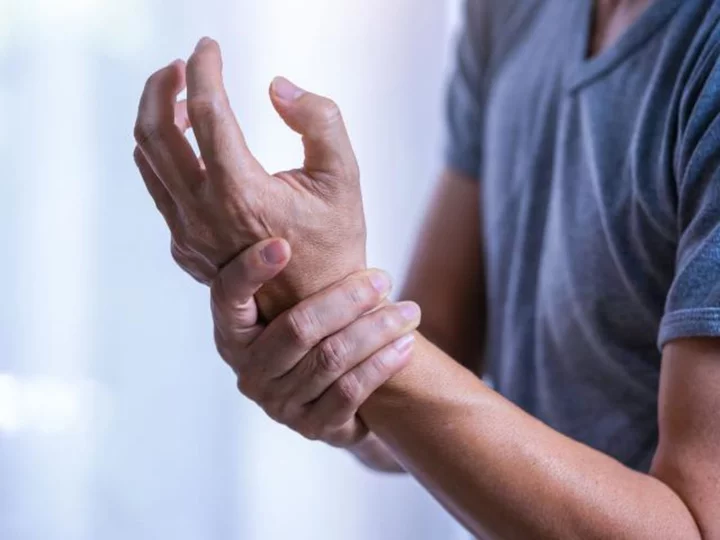There are more new cases of chronic pain among US adults than other common long-term conditions like diabetes, depression and high blood pressure, according to a new study.
The researchers say their findings "emphasize the high disease burden of chronic pain in the US adult population and the need for early management of pain."
Research published last month in the US Centers for Disease Control and Prevention's Morbidity and Mortality Weekly Report estimated that more than 51 million people -- more than 20% of US adults -- have chronic pain and 17 million -- almost 7% of adults -- have high-impact chronic pain.
The new study, published Monday in the journal JAMA Network Open, looked at data on more than 10,000 participants in the National Health Interview Survey, which is conducted annually by the CDC's National Center for Health Statistics.
The researchers looked the participants' reports of chronic pain, defined as pain on most days or every day over the past three months, and high-impact chronic pain, defined as as chronic pain that limits life or work activities on most days or every day over the past three months.
Among people who reported being pain-free in 2019, the annual rate of chronic pain the next year was 52.4 per 1,000 people, and there were 12 cases of high-impact chronic pain per 1,000 people. By comparison, the researchers say, there are 7.1 cases of diabetes, 15.9 cases of depression and 45.3 cases of high blood pressure per 1,000 people per year.
Almost two-thirds of participants who reported chronic pain in 2019 said they still had it a year later. However, more than 10% of people with chronic pain in 2019 were pain-free in 2020.
"This study doesn't just demonstrate the terrible burden of pain in this country. While 10% of people who recover from chronic pain give us hope, we have an urgent scientific imperative to expand our tools to fight pain so we can restore many more to a pain-free life," Dr. Helene M. Langevin, director of the National Center for Complementary and Integrative Health, said in a news release. "The onset of any chronic condition is a pivotal moment and early intervention can make a significant difference in the toll that the condition takes on the individual."
The study was conducted by researchers from the NCCIH, Seattle Children's Research Institute and the University of Washington, Seattle.
They noted that their work had some limitations, including a lack of information on underlying causes of pain. The data was collected only twice across two years, and people who reported chronic or high-impact chronic pain could have been less likely to participate in the follow-up survey. There was also limited information on American Indian, Alaska Native and Asian people.

